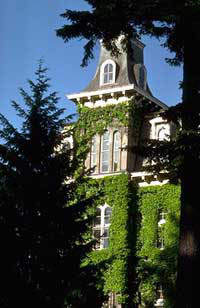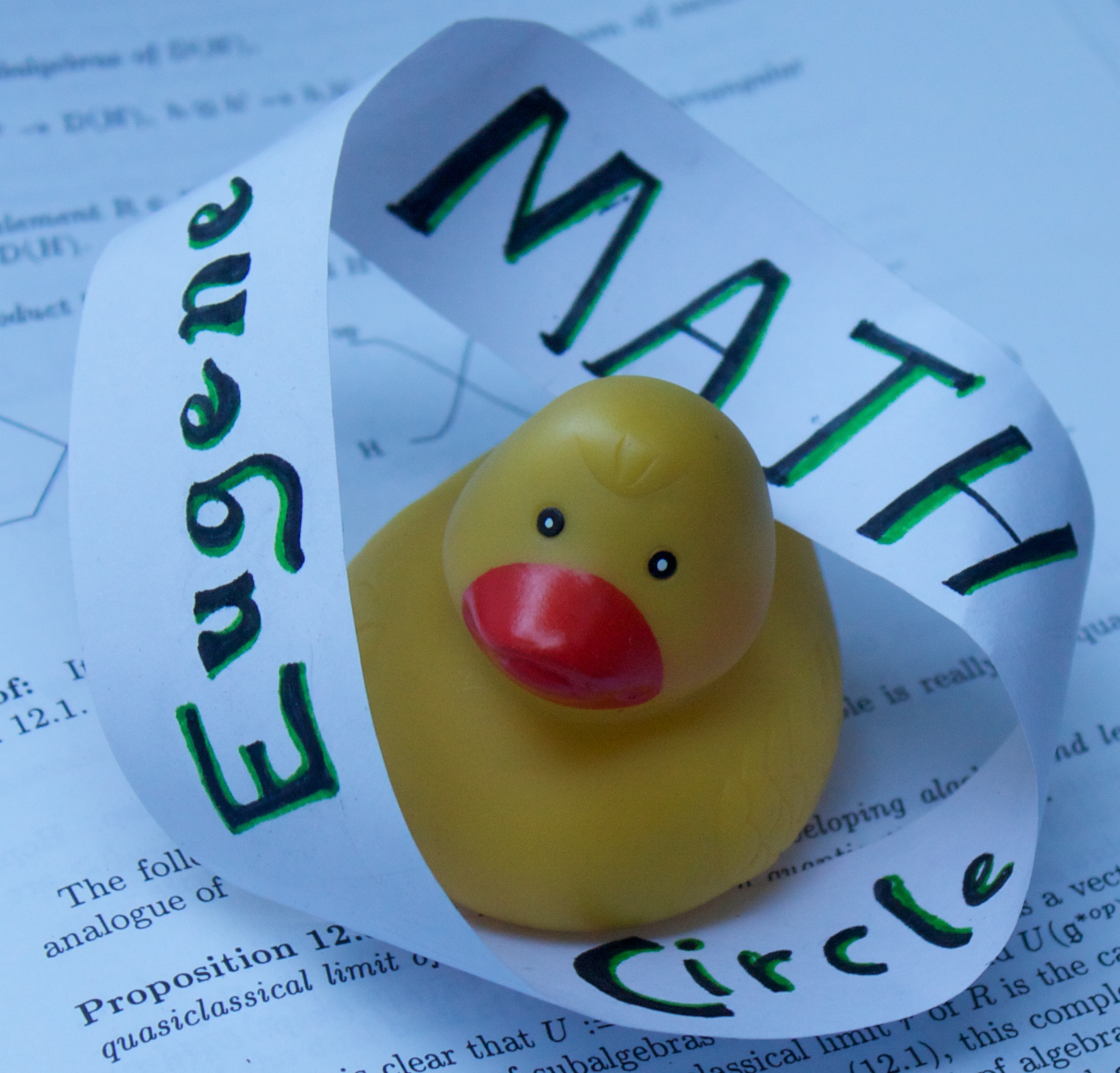
Eugene Math Circle



The Eugene Math Circle is a vibrant program for students who are passionate about mathematics and science. We welcome young minds from all backgrounds who are eager to explore the beauty and excitement of mathematics beyond the traditional classroom.
In our weekly gatherings, students discover:
Our mission is to:
Guided by experienced mathematicians and educators, our students develop critical thinking skills, mathematical intuition, and problem-solving abilities that will serve them well in any future path—whether as mathematicians, scientists, engineers, or leaders in other fields.
Definitely apply! You are welcome to join at any time provided there is space and the consecutive lessons are independent of each other (as is often the case in Upper Division classes). Otherwise, you'll be put on the waiting list for the next term. We love to meet new people interested in math!
Absolutely! As many practicing research mathematicians will tell you, it often takes several years to become an experienced problem solver. It's completely fine (and expected) if you need to see a particular topic or discuss a particular idea several times before it starts to make sense. Keep in mind that the material discussed in EMC sessions is advanced and non-traditional.
Parents can contribute to our community in several ways:
Your support helps us maintain our commitment to making mathematics education accessible to all students, regardless of their financial circumstances.
There are many great books we can recommend, here are some of them:

Authors: Dmitri Fomin, Sergey Genkin, and Ilia V. Itenberg
Published by: American Mathematical Society
A unique exploration of mathematical circles that demonstrates how mathematics can generate enthusiasm similar to team sports.
Purchase
Authors: Laura Givental, Maria Nemirovskaya, Ilya Zakharevich
Published by: American Mathematical Society
A comprehensive guide for math circle instructors and enthusiasts, featuring a logical sequence of problems and insights into mathematical thinking for elementary school students.
Purchase
Edited by: Zvezdelina Stankova and Tom Rike
Published by: A co-publication of the AMS and Mathematical Sciences Research Institute
A pioneering exploration of mathematical topics, problem-solving techniques, and mathematical thinking for young mathematicians.
Purchase
Edited by: Zvezdelina Stankova and Tom Rike
Published by: A co-publication of the AMS and Mathematical Sciences Research Institute
Continuation of the first volume, featuring advanced mathematical topics and problem-solving techniques.
Purchase
Author: Anna Burago
Description: Complete Curriculum for Grades 5 to 7
A comprehensive guide for mathematical education and problem-solving for middle school students.
Purchase
Author: Anna Burago
Description: Complete Curriculum for Grades 6 to 8
Continuation of the mathematical education and problem-solving curriculum for middle school students.
Purchase
Author: Kjartan Poskitt
Description: Entertaining series that offers a great overview of mathematics for advanced elementary and middle school students with humor and enjoyment.
Purchase
Author: A. Shen
Description: Almost self-contained introduction to geometry through problem solving for advanced middle and high school students.
The book contains more than 750 (mostly) easy but nontrivial problems in all areas of plane geometry and solutions for most of them, as well as additional problems for self-study.
Purchase
Author: Martin Gardner
Description: First volume in The New Martin Gardner Mathematical Library series.
Any Martin Gardner's book provides fantastic introduction to recreational math. This one is for advanced middle and high school students; others might be good for elementary school students too.
Purchase
Author: Ben Orlin
Description: An extensive collection of mathematical games that require only paper and pencil (and occasional handful of coins).
Purchase
Author: Boris Kordemsky
Description: A great assortment of mathematical puzzles for all ages.
Purchase
Author: R. Smullyan
Description: Collection of more than 200 increasingly complex problems: from relatively simple puzzles to puzzles that delve into Gödel's undecidability theorem and other examples of paradoxes of logic and set theory.
PurchaseYour donation helps us maintain affordable tuition and provide scholarships to ensure the Math Circle remains accessible to all students.
Support the Math Circle